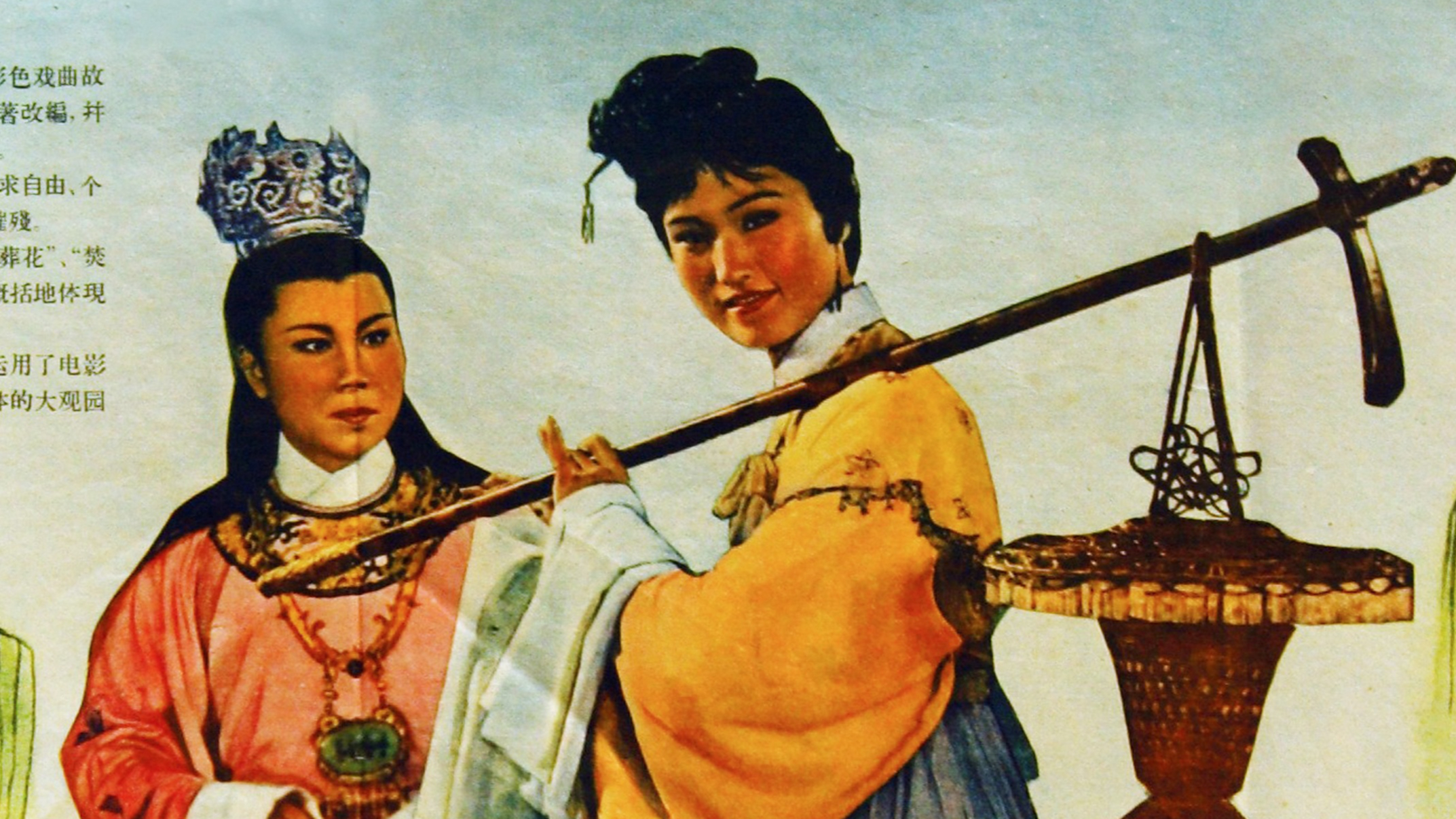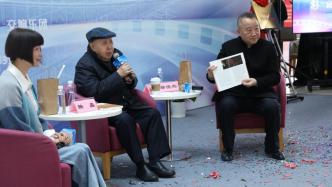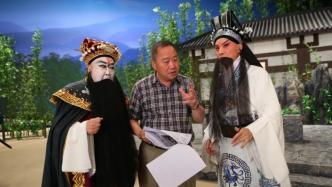
Some people call the series of opera films directed by Teng Junjie "new Peking Opera films" or "new opera films". Director Teng's use of new film technology and the film medium will inevitably give traditional opera "new" aesthetic information, forming the so-called new opera films and completing the transformation from "stage documentary" to "film art film".
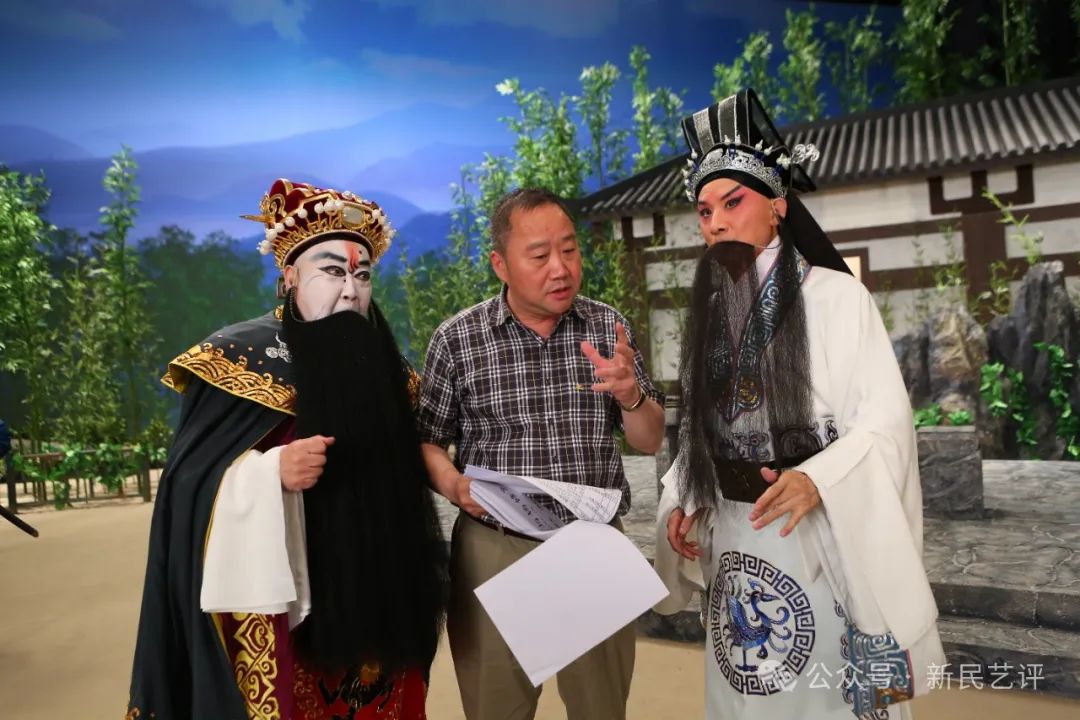
On the Chinese movie screen, Director Teng Junjie and his opera films are a unique landscape, and in the context of the "creative transformation and innovative development" of excellent traditional culture, it is an important achievement. Taking advantage of the occasion of the Chinese New Era Opera Film Research and Teng Junjie Opera Film Seminar, we look back at the eight opera films directed by Director Teng since 2012, including "Farewell My Concubine", "Xiao He Chasing Han Xin Under the Moon", "Cao Cao and Yang Xiu", "The Great Events of Zhenguan", "Catching and Releasing Cao Cao", "The Unicorn", "Daughters of Dunhuang", and "The Story of Handan", including Peking Opera, Kunqu Opera, Shanghai Opera and other repertoires, and have won or been nominated for the Best Opera Film Award at the China Film Golden Rooster Awards many times. As a special form of Chinese film, it has gone abroad and to the world, using the light and shadow carrier of film to spread the long-standing Chinese colorful opera culture to the world.
The "two-way rush" of opera and film started as early as the birth of Chinese film in 1905, with the silent film "Dingjun Mountain" starring Tan Xinpei. Since then, Chinese opera films have been endless, and "The Legend of the White Snake", "The Butterfly Lovers", "A Dream of Red Mansions", "The Female Generals of the Yang Family", "Fifteen Strings of Cash", etc. have all been popular for a time. Some people call this batch of opera films directed by Teng Junjie "new Peking Opera films" or "new opera films", and three of the keywords just summarize the characteristics of these works. First of all, it is opera in terms of subject matter, and secondly, it is film in terms of media. If "media is information", Director Teng's use of the film medium of new film technology will inevitably make traditional opera produce "new" aesthetic information, forming the so-called new opera film, completing the transformation from "stage documentary" to "film art film".
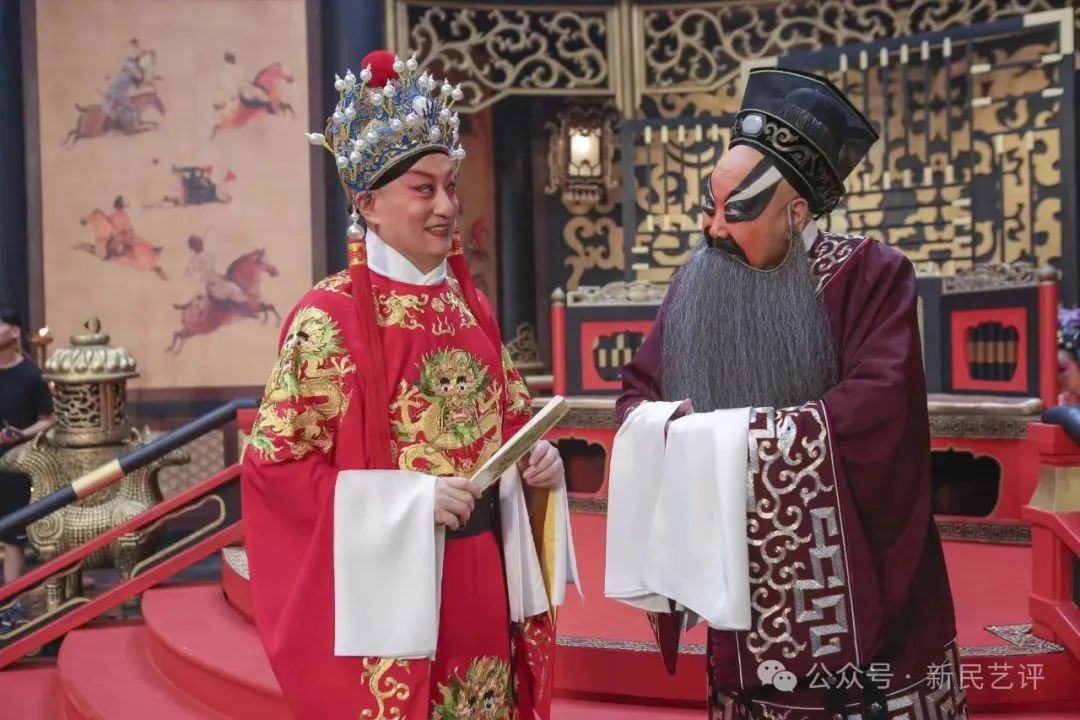
How to properly handle the relationship between opera and film is the key to the new opera film to make use of the past and bring forth new ideas. Opera films must first "take opera as the basis and film as the purpose" and respect the "classicism" of opera itself. "Farewell My Concubine", "Cao Cao and Yang Xiu", "Catching and Releasing Cao Cao", "The Unicorn Bag", "The Story of Handan", all these opera story prototypes can be said to have been passed down for hundreds and thousands of years, with joys and sorrows, separations and reunions, and resentments. To some extent, they have become the "national memory" and "cultural prototype" of Chinese culture. Director Teng tried his best to discover, preserve and magnify the classic value of these cultures. Shang Changrong, Shi Yihong, Yan Xingpeng, Chen Shaoyun, Guan Dongtian, Wang Peiyu, Zhang Huoding, Ji Zhenhua, Liang Guyin, Mao Shanyu and other contemporary top actors played the leading roles. The important scenes, lines, singing styles, etc. of the original drama were kept to the greatest extent possible. The charm and charm of the language and melody itself were preserved, and efforts were made to trace the roots, be authentic, and inherit and uphold the orthodoxy in virtual and stylized performances. The creative guiding ideology of "opera-based, film-based" runs through the film's respect, restoration and adherence to Peking Opera and opera culture. Many classic scenes and singing segments have been reproduced and amplified, reflecting the confidence in China's excellent traditional culture. Opera masters such as Shang Changrong have given positive comments on this.
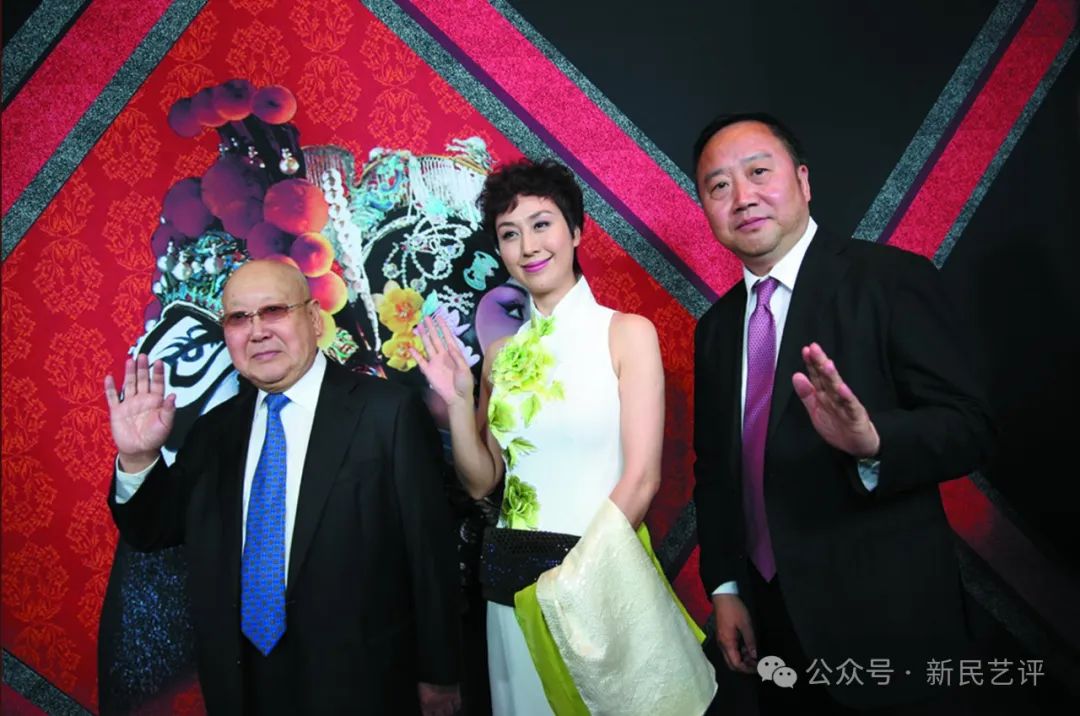
At the same time, the possibilities of film audio-visual art and technology have also been expanded. Through the combination of "the art of the director" and "the art of the leading actor", the stage opera art has been "filmed" to the greatest extent. Although his opera films are "faithful" to the classicism of the original works, he strives to use the audio-visual means of film, including the emphasis on the "micro-performance" of the actors, the requirement for the authenticity of the makeup, the control of the rhythm, the strengthening of the suspense "buttons", the intervention of the location, the omission of the lengthy connection of the stage performance, the richness of the colors and the unity of the tone of the scenery, costumes, and props, etc., which are more in line with the laws of film expression. In terms of audio-visual language, he tried to use the lens to moderately break through the constraints of the stage, "steadily approach the richness of the film", and give full play to the structural weaving, lens application, role scheduling, stage design, and audio-visual expansion. Moving lenses, changing scenes, cross-cutting, special effects rendering and other methods have expanded the amount of information in the picture, accelerated the sense of rhythm, and enhanced the audiovisual appeal. He was even the first to complete the technical upgrade from "full-scale 3D live-action + panoramic sound" to "8K + panoramic sound", allowing the art presented in the past in one dimension on the stage to produce a more immersive cinema art effect, which not only meets the needs of opera lovers, but also meets the needs of movie audiences, allowing the charm of traditional opera to produce a stronger artistic appeal and influence with the empowerment of light and shadow technology.
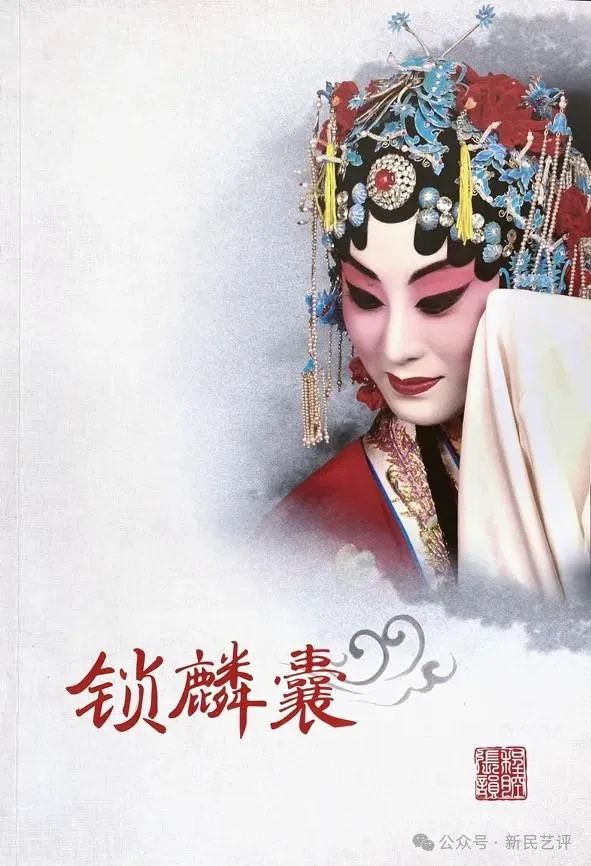
It has achieved the fusion of classicism and cinematography, as well as the dialogue between tradition and the contemporary, and the overlap of opera audiences and movie audiences. This is exactly what is new about the opera films directed by Teng Junjie. He has been exploring innovations, constantly seeking new possibilities and maximizing effects in art, modeling, images, audio-visual, editing, rhythm, etc. Before preparing to shoot his first opera film Farewell My Concubine, he read a lot of Peking Opera historical materials and watched many Peking Opera repertoires. According to the "three-step" plan, the first step is to "turn yourself into a Peking Opera person", then "turn yourself into a movie lens", and finally "turn yourself into an audience sitting in a dark movie theater". The "three-step" is not only his methodology for creating Farewell My Concubine, but also the common principle for his later creation of a series of opera films. In the selection of plays, full consideration was given to the "commonality" of traditional culture with the modern civilization of the Chinese nation and the modern civilization of the world, with more attention paid to spiritual themes such as love, family affection, wisdom, conduct, integrity, and honor of the Chinese people. Although these works are classics, they still maintain the brilliance of humanity, humanity, and people's nature, and interpret themes that are connected and integrated with modern civilization with an oriental story and an oriental perspective.
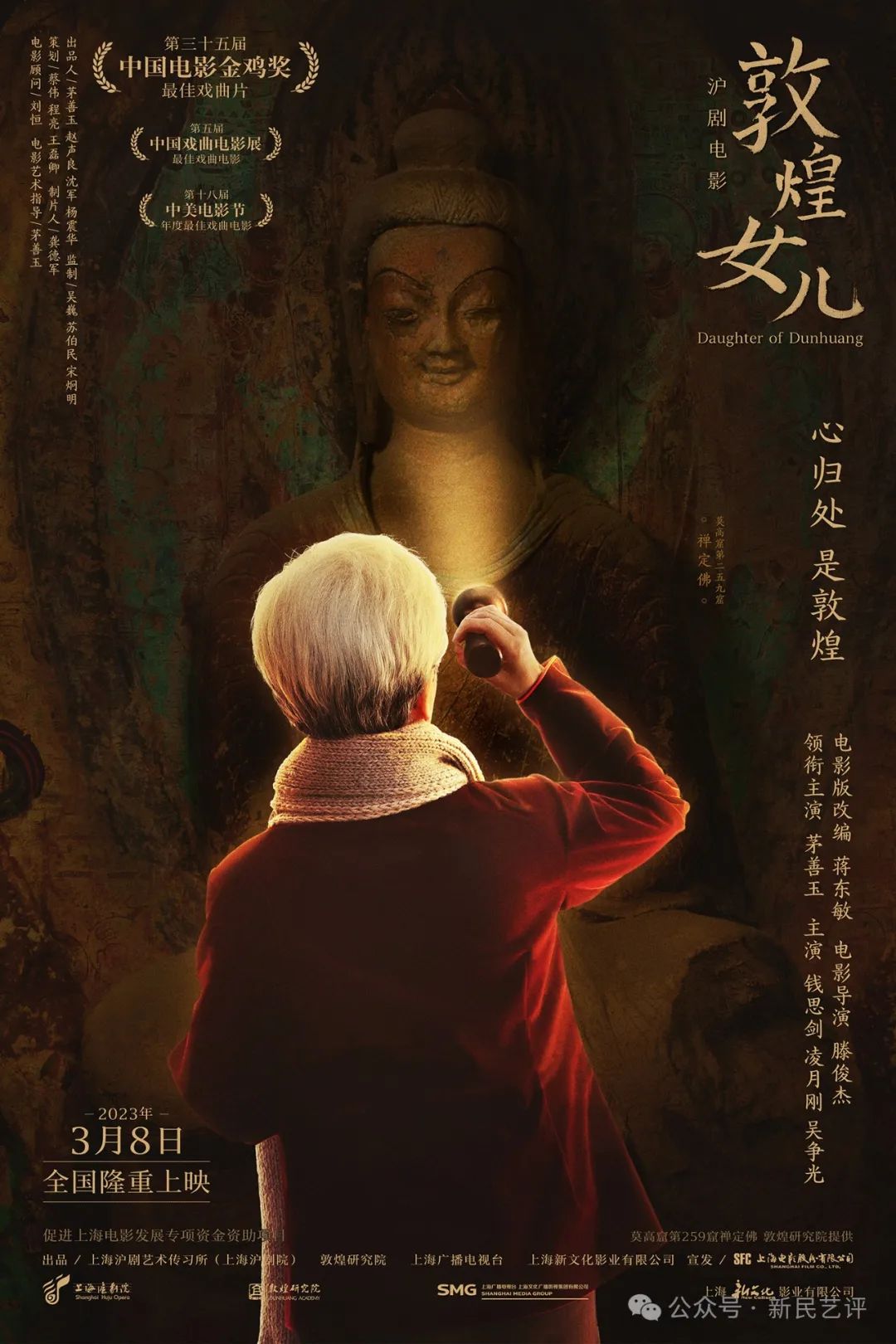
In recent years, opera films have also faced new development opportunities due to the inheritance and innovation of traditional culture. Works such as "Farewell My Concubine", "The Great Events of Zhenguan", "Daughter of Dunhuang", "The Story of Handan" and "The Lock of the Unicorn" have not only left precious image archives for outstanding Chinese operas and contemporary top opera artists, but more importantly, explored the intimate embrace between traditional opera forms and modern film forms. In the book "Tribute and Advance: An Introduction to the Creation of New Peking Opera Films", Director Teng systematically summarized his experience in creating opera films. This is also the first academic work on the creation of Peking Opera films in China, and its significance is timeless. Of course, as Liu Xie said in "The Literary Mind and the Carving of Dragons", "change can last long, and communication is not lacking". On the basis of inheritance, how to innovate and transform more boldly, openly and actively not only from the media and technical levels, but also from the aesthetic and cultural dimensions, so that the essence of opera culture can be more widely and deeply revitalized in contemporary culture, contemporary audiences and contemporary youth through film forms, and become a more influential and inspiring cultural element in the modern civilization of the Chinese nation and the global cultural community, is still an ongoing project. Human affairs change, and the past and present are connected. The creative transformation and innovative development of opera films are still on the road of development and change.
